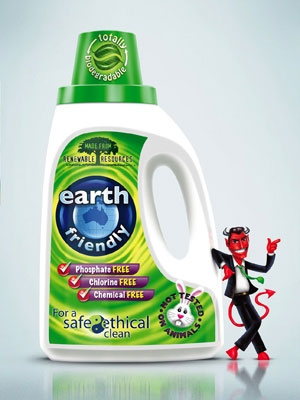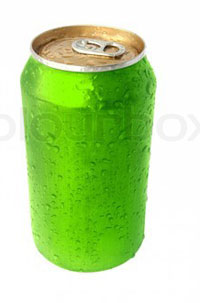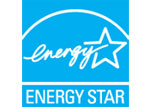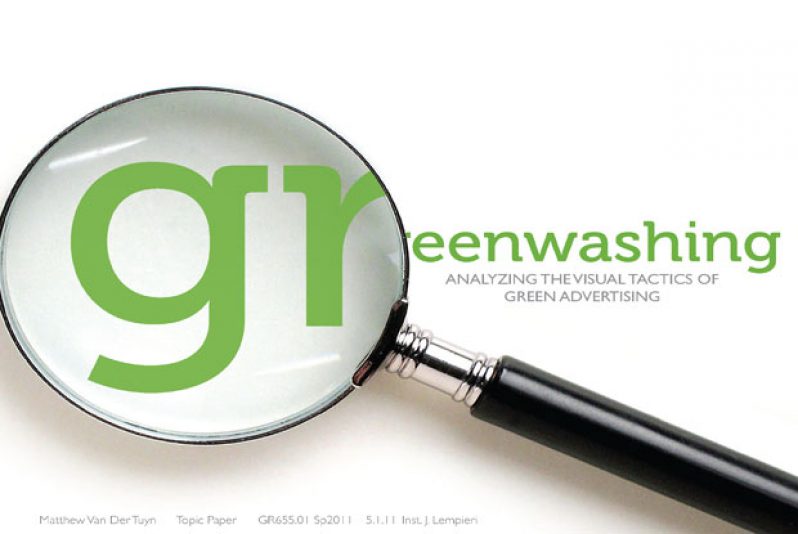THE consuming public is increasingly becoming more aware of environmental issues. Aware of this, businesses have quickly recognized that they need to seek ways to provide and market greener products that have lower impact on the environment.  However, consumers need to be wary of what has become known as the green-washing ploy used by some businesses. This ploy applies more to products manufactured in more industrialised societies than to those manufactured locally.
However, consumers need to be wary of what has become known as the green-washing ploy used by some businesses. This ploy applies more to products manufactured in more industrialised societies than to those manufactured locally.
The term ‘whitewashing’ is commonly is used to mean “a coordinated attempt to hide unpleasant facts.” “Greenwashing” uses the same principle, where a company or organisation spends more time and money to advertise and market how ‘green’ its products are, rather than actually putting the systems in place to minimise the environmental impact of these products.
Let say for example, a certain hotel chain calls itself “green” because it allows guests to choose to sleep on the same sheets and reuse towels. However, if this hotel chain actually does very little to save water and energy in its appliances, lighting; kitchens; and gardens, then it is in fact “green-washing” its image.
How to Spot Green-washing
Here are a few tips to help you spot or avoid green-washing:
1. Truth: Vague claims such as using the terms “organic”, “environmentally friendly” and even “eco-safe” tend to give the impression that the product is safe when in fact it is not. These vague claims leave room for misinterpretation and advertisers and manufacturers take full advantage of this.
2. The Whole Truth: Try this: Google the company’s name plus the word “environment” and see what pops up. If the company has a track record of environmental problems, it will come up in this search.
3. And Nothing But the Truth: If you see a green advertisement, take a look at the company as a whole. Check if you can easily find more information about their sustainable business practices on their website. Find out if they have a comprehensive environmental story and whether they have believable information to verify the green claims you saw in the Advertisement. If not, beware!
Why Is Green-washing a Problem?
Green-washing can be practiced by various types of companies: airlines, car companies, restaurants, hotels, retailers, etc. While it is a good thing to have a ‘green’ business, green-washing is bad, not only for the environment, but also for consumers and the business itself.
Environment: Green-washed products just claim to be green, so that more can be sold. Since these products are not actually environmentally friendly, using more of them will cause more harm than good to the environment.
Consumers: Usually, products that claim to be environmentally friendly are slightly more expensive than a regular product. By buying such products, consumers’ pay more though the product does not actually do good for the environment.
Businesses: By choosing to green-wash its products, a company puts itself at risk of losing customers. Once consumers see that a product is not environmentally friendly, green-washing backfires and damages the company’s reputation and ultimately, its sales.
Companies need to recognise that there are ways in which they can reduce their environmental impact and improve their products. By endeavouring to go the extra mile in actually producing environmentally friendly products, they will maintain their integrity and will reap the benefits.
To help consumers to identify truly green products, various accredited bodies now exist that give their stamp of approval to products. You can find many examples of these at http://www.epa.gov/greenerproducts/. As a preview here are three examples:

ENERGY STAR is a joint program of the U.S. Environmental Protection Agency and the U.S. Department of Energy. ENERGY STAR identifies and promotes energy-efficient products and practices that can help us all save money and protect the environment.
GreenChill Advanced Refrigeration Partnership is a US EPA cooperative alliance with the supermarket industry to promote advanced technologies, strategies, and practices that reduce refrigerant charges and emissions of ozone-depleting substances and greenhouse gases.
Design for the Environment (DfE) works with manufacturers in the US to create safer household and commercial chemical products, such as cleaners and detergents.
Kids Activity: Greenwashed Word Scramble
Unscramble the following words related to ‘Greenwashing’. The first of each word is circled.
You can share your ideas and questions by sending letters to: “Our Earth, Our Environment”, C/O EIT Division, Environmental Protection Agency, Ganges Street, Sophia, GEORGETOWN or email us at eit.epaguyana@gmail.com














